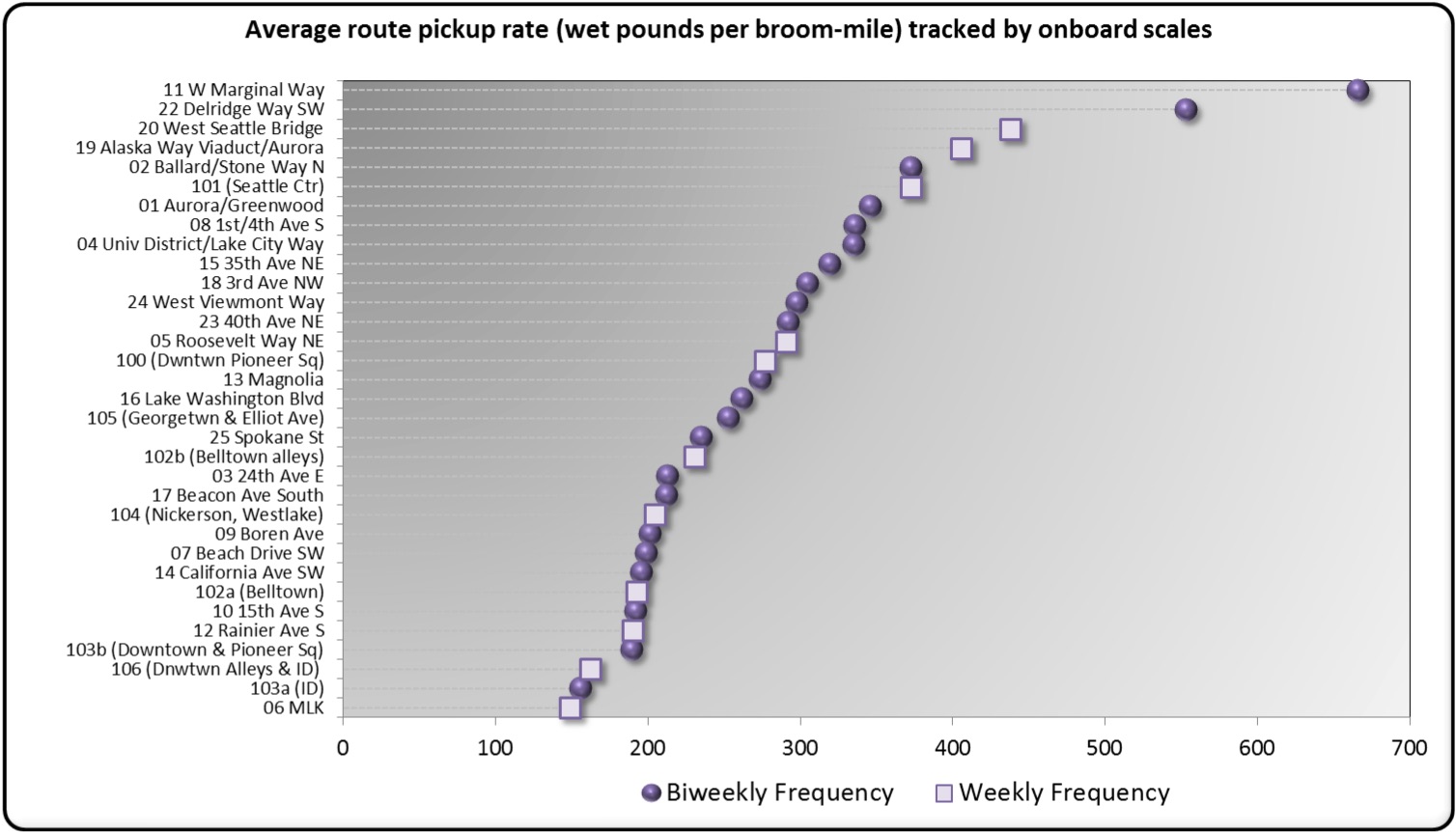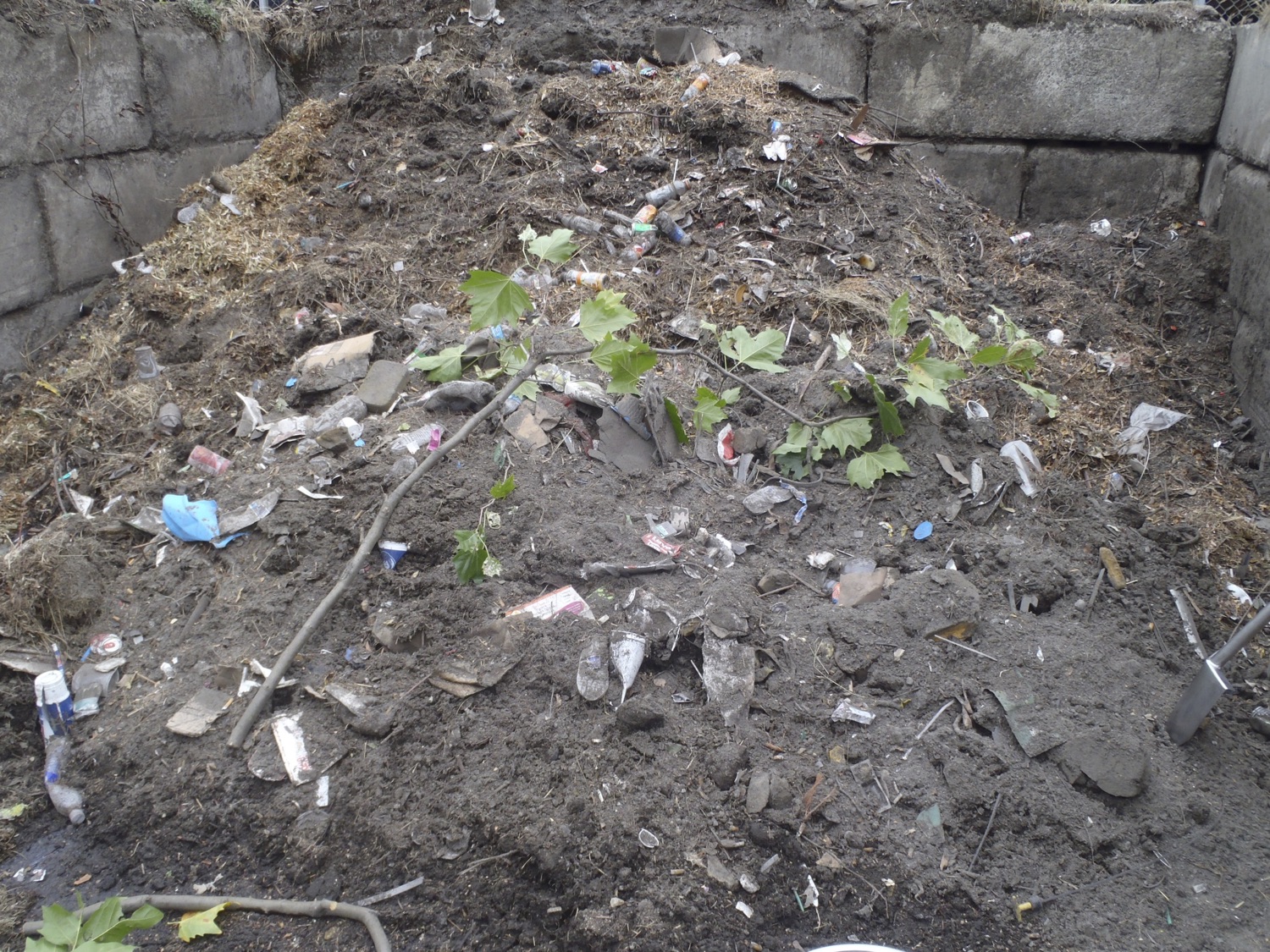Connecting state and local government leaders
Performance data show that street-sweeping programs are more economical than some environmental infrastructure investments.
SEATTLE — Brake dust, remnants of auto exhaust, the zinc in vehicle tires. These are just a few of the substances commonly found in the toxin-laden residue on city streets.
“When it rains, all of that ends up in the waterways,” Shelly Basketfield, a program manager at Seattle Public Utilities, said during a recent interview at the agency’s headquarters. “It’s nasty stuff.” In a city known for abundant rainfall, and where the surrounding waters are home to species like salmon, orca whales and harbor seals, the road grime presents a problem.
In recent years, Seattle Public Utilities has turned to street sweeping as a solution, a partial one at least, to reduce the amount of street contaminants that mix with rainfall and flow into creeks, lakes, the Duwamish River, which is a Superfund site, and Puget Sound.
During this time, the utility has collected performance data that seems to show street sweeping can not only help keep pollutants out of stormwater, but also that it may be a more cost-effective way of doing so than building some types of infrastructure.
In about two-thirds of Seattle, the rainwater that hits city streets goes down storm drains and through pipes that feed directly into bodies of water. About 13 billion gallons of this discharged water is released in an average year, according to Seattle Public Utilities.
The other approximately one-third of the city is served by a system where stormwater and sewage flow through the same pipes to treatment plants. But during heavy rains, this system can overflow and dump into waterways. SPU says these overflows totalled 154 million gallons in 2012.
Next week, the Seattle City Council will begin considering financing for a 15-year, $600 million plan intended to keep the sewer overflows and polluted runoff in check. The plan calls for expanding the street-sweeping program to help achieve this goal.
Low-Hanging Fruit
A major source of contaminated runoff is Seattle’s higher-capacity streets, known as arterials. These roadways make up just 4 percent of the city’s surface area, but they also contribute 16 percent of the pollutant load in stormwater, Basketfield explained.
“That’s where most of the cars are,” she said. And when it comes to eliminating contaminants: “It’s the low-hanging fruit.”
So in 2011, Seattle Public Utilities, which oversees drainage and wastewater in the city, began working with Seattle Department of Transportation, which is responsible for street sweeping, on a program to scrub contaminants off of arterials that drain into bodies of water.
Seven street sweepers now involved in the effort use not only brooms, but also blast the pavement with air to help loosen debris, which then gets sucked into a hopper.
The machines are also outfitted with onboard scales and tracking systems, which measure the amount of material removed from the streets and the miles swept across 33 routes.

The utility is also gathering information about what’s in the sweepings. The material is sampled every other week to determine the weight of the pollutants it contains, and the level of specific contaminants such as metals, PCBs and fecal coliform, according to Basketfield.
So what has this sampling shown?
Last year, the sweepers collected a total of 1,110 tons of debris off the city’s arterials, based on the Seattle Public Utilities figures. Of that total, 130 tons were very fine-grained particles that the utility classifies as pollutants. That amount is roughly equivalent to how much a 53-foot railroad gondola can carry when fully-loaded.
Within the 130 tons, a few hundred pounds were especially problematic substances.
For instance, there were 170 pounds of total phosphorous, known to cause algae blooms that upset aquatic habitats, and 43 pounds of copper, which can affect salmons' sense of smell, leaving them more prone to getting eaten by predators.
In 2012, the total amount of fine-grained solids that street sweepers working under the program removed from the street was 120 tons and in 2013 it was 100.

“We’re removing a lot of pollutants,” Basketfield said.
Dale Norton, who manages the toxic studies unit at the Washington State Department of Ecology, is not directly involved with the Seattle sweeping program but, in his view, getting 100 tons of pollutants off city streets each year does have the potential to help fish and other marine life in Puget Sound. “I don’t see how it wouldn’t be beneficial,” he said. “Any reductions you can make are certainly going to help.”
Norton added: “It’s a whole lot easier to deal with this stuff before it gets released.”
A Cost-Effective Option
Beyond offering raw numbers about the amount of pollutants removed, collecting data on the program has also enabled SPU to evaluate its cost-effectiveness, which it does by weighing dollars spent against the pounds of pollutants the sweepers remove.
That figure worked out to about $4.80 per pound in 2014,
Compared to some infrastructure aimed at reducing stormwater runoff, that’s a bargain. Information Basketfield shared during the interview last week showed the cost effectiveness of eight stormwater projects, including ponds and swales, which are basically channels designed to capture contaminated runoff.
With the exception of one pond, the cost-effectiveness figures for these facilities checked in between $8.20 per pound and $53 per pound, far higher than the figure for the sweepers.
Going forward, Seattle Public Utilities is looking to double down on street cleaning. Basketfield said that next year the utility plans to increase the number of lane miles swept annually from 10,000 to 20,000.
“We’ll be sweeping almost all the arterials,” she said.
The costs for sweeping, not including capital expenses, are set to run about $750,000 in 2015. That number would increase if the mileage is expanded. But Basketfield sees street cleaning as a way to possibly shield the city from some future costs.
“In the long run,” she said, “if we keep dumping all this stuff in the waterways, potentially we’re going to have to go in and clean it up, which is really expensive.”

NEXT STORY: California Porn Stars Need to Wear Goggles? A Doctor Dispels a Regulatory Myth




